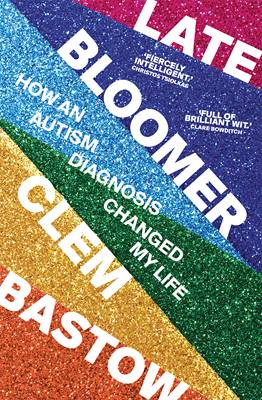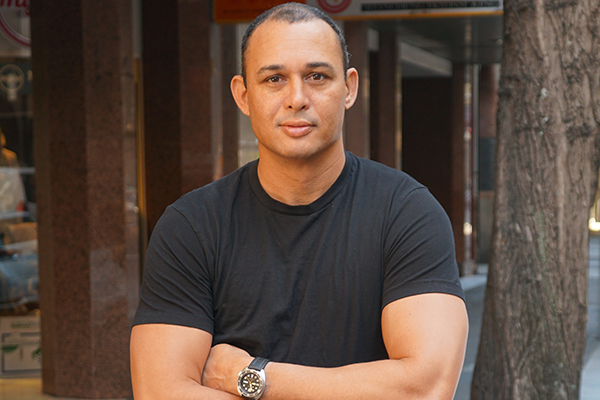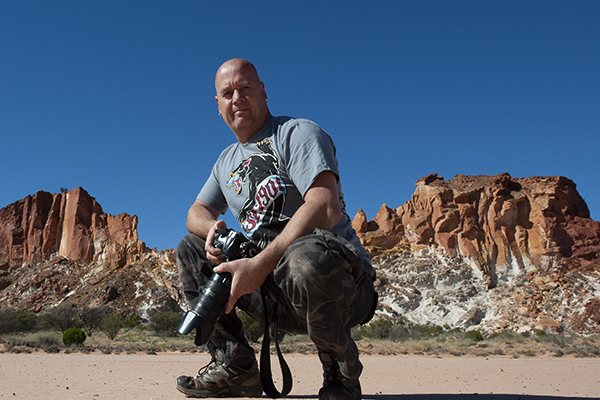A Conversation with Clem Bastow and Arwen Summers
22 Jul 2021 | Clem Bastow and Arwen Summers
Late Bloomer is a bold, heartfelt, and highly-anticipated memoir from Clem Bastow reflecting on the path that led her to her later-life Autism diagnosis.
Clem Bastow and Arwen Summers Q&A
Clem, you describe your later-life Autism diagnosis as a moment that changed your life. Can you tell us about that and the impact of writing this memoir has had on you? And Arwen, can you tell us what made you most excited about Late Bloomer when you first acquired it for publication?
To be sent an author’s first draft is a unique privilege, perhaps even more so with a memoir. You’ve been entrusted with something special and raw and real, and it’s your responsibility to handle it with care and respect. This doesn’t preclude honesty – your job is to be genuine in your feedback – but it does mean thinking carefully about the author’s intentions and audience (and asking lots of questions) to figure out exactly what they’re trying to say, if it’s not clear, and how it could be clearer. How else did Clem and I build trust? Psyduck gifs. Lots of psyduck gifs. Pokémon is truly a universal language.
Clem: Yes, Arwen very kindly allowed me to – at times – communicate almost solely in GIFs. I was lucky that I already knew Arwen, so it wasn’t like sending my diary to a stranger, but she made it very clear throughout both the torturous/tortuous process of writing the first draft and then her reading of it that she wasn’t about to send me back the document with loads of angry comments then put her Out of Office Auto-Reply on while I worked on the second draft. It felt very collaborative and I think that helped me ease into the process. I think that first draft felt especially fragile to send out because while writing is usually fairly solitary, writing during Melbourne’s Stage 4 Covid-19 lockdown in 2020 was particularly solitary!
This book is thoroughly researched and works not just to tell your story, Clem, but also share insight into a wider range of Autistic experiences. Can you both tell us a bit about your personal learning processes as publisher and author when working on this book and why it was important?
Clem: It was huge for me. When you’re diagnosed late in life, you may – as I did – feel a little like you don’t have a “right” to claim Autistic identity. It’s nonsense, obviously, but there is certainly a bittersweet quality to having grown up without any sense of Autistic pride or identity. The research process was a way for me to recognise that, yes, things I’d been through were because I’m Autistic, but it was also a way for me to be subtly political: Autistic people are too often treated as object, not subject, so I felt like in engaging with a lot of clinical literature (not all of which I agree with!) and then using my own experience to de/recontextualise it, I was trying to rescue many aspects of Autistic experience from that clinical idea of lack or deficit.
Arwen: Where do I start?! I went on a journey of learning and wonderment with Clem and Late Bloomer. There’s a whole world of Autistic people out there, and as the saying goes, if you’ve met one Autistic person, you’ve met one Autistic person. I basically threw out most of what I thought I knew about Autism and started afresh. I stopped using terms like Asperger’s Syndrome, ‘high-functioning’ and ‘low-functioning’; I began to think of ‘Autistic people’ instead of ‘people with Autism’; I started to conceive of Autism as a colour spectrum instead of a linear ‘evolutionary’ line; I began to appreciate the depth and complexity of sensory processing and the challenges it can present; and I started to apply a lot of my newfound knowledge to my own life experiences as a parent. At the same time as I was working on the book with Clem, it became apparent that one of my children has a number of sensory processing sensitivities, and I felt extremely fortunate to have an insight into what they might be experiencing – to look beyond their behaviour and imagine what might be going on inside their mind.
Arwen, were there moments when you made mistakes as a publisher working on this book and if so, what did you do to address them and hold yourself accountable?
Arwen: I’m sure I made mistakes. I was learning a new vocabulary for thinking and speaking about autism, and no doubt applied outdated ideas and neurotypical observations to Clem’s experiences, although Clem was kind enough not to point any of them out. In all my structural notes and conversations with Clem I tried to be mindful of these assumptions and presumptions. The book’s working title, however, was On the Spectrum, which Clem very politely told me made her ‘physically mad’. We went back to the drawing board and brainstormed a whole bunch of new not-quite-there titles, and then Clem came up with the perfect Late Bloomer while gardening. I’m so glad we didn’t call it On the Spectrum – not least because it doesn’t convey any of the emotion of Clem’s experiences and reduces her life to an ‘Autism story’ instead of a story for everybody. Which is exactly what it is.
What did you most want readers to learn about Autism in reading Late Bloomer?
Clem: Lots, I hope! I know there’ll be some stuff in there that is confronting or surprising to some readers (possibly to non-Autistic parents of Autistic people) but I hope that it’s balanced out by a sense of pride, relief and joy. Too often, stories of late-life diagnoses are dismissed as the end result of “just feeling a bit weird”, when the reality is often that it comes at the tail end of a lifetime of suffering. My hope is that in using my own experience to illustrate or contextualise some aspects of Autism (i.e. those that come from a diagnostic or clinical perspective) will allow readers to see either their own (Autistic) experiences reflected, or allow non-Autistic readers to understand certain aspects of Autistic culture and experience. I can say “circumscribed interests” to parents of a kid who’s recently been diagnosed and they’ll probably still be wondering what exactly that means, or I can explain it by way of illustrating my own obsessive love of dinosaurs; I can explain why echolalia isn’t necessarily a “weird quirk” or problem to be solved by demonstrating how important Ghostbusters dialogue quotes have been to my development. We still live in an era where typical “therapies” aim to extinguish Autistic kids’ inherent Autistic behaviours, try to make them more “normal”, so it was really important that Late Bloomer try to impart a sense of acceptance, joy and respect to the reader. Every Autistic person is different, but every Autistic person has value, even if they can’t do things you or I may be able to.
Late Bloomer is available now in all good bookstores and online. Click here for your preferred online retailer
More from Clem Bastow and Arwen Summers
To hear more about Late Bloomer watch the video below.




